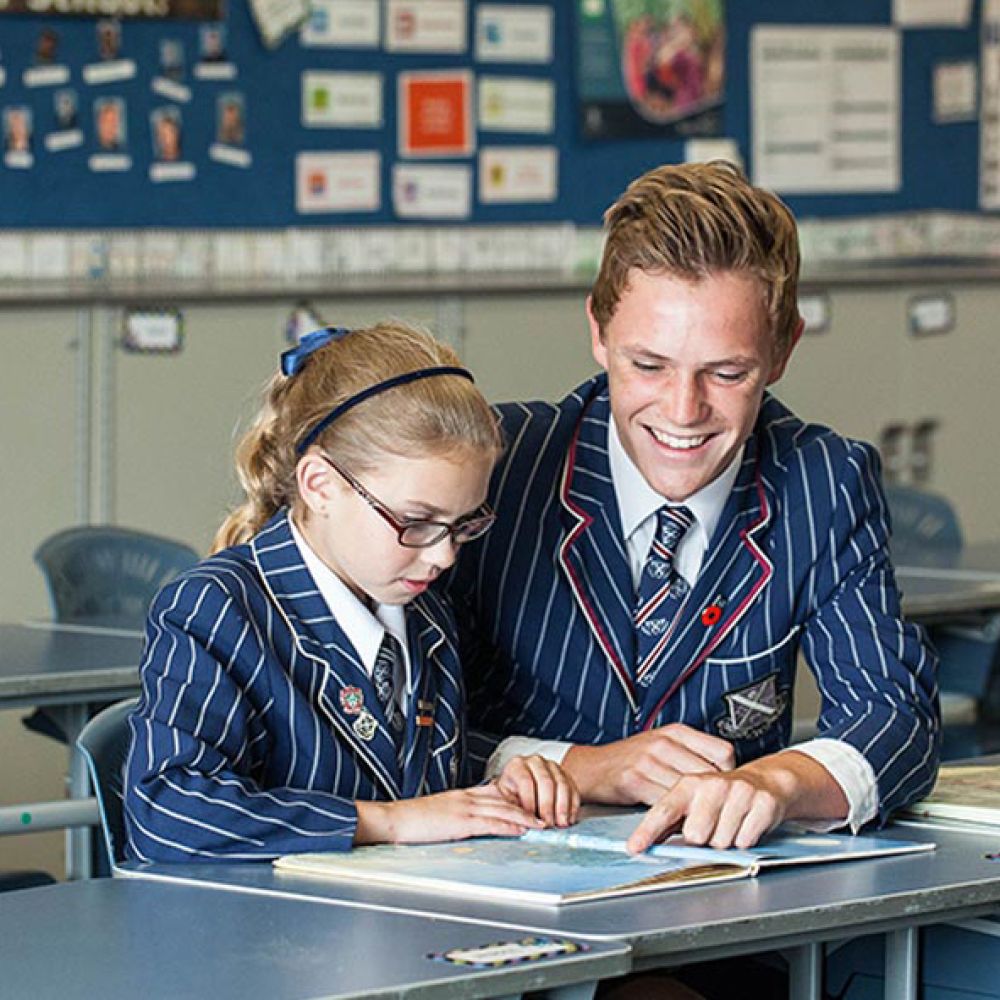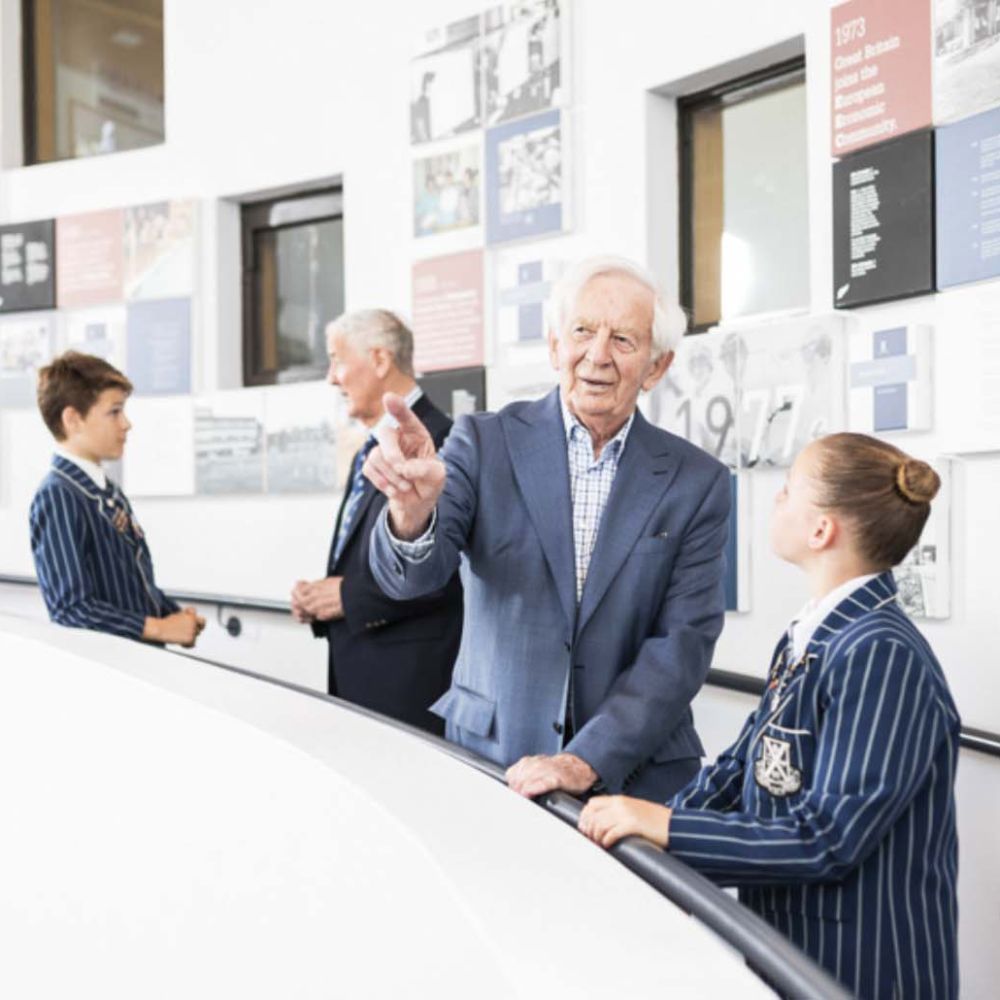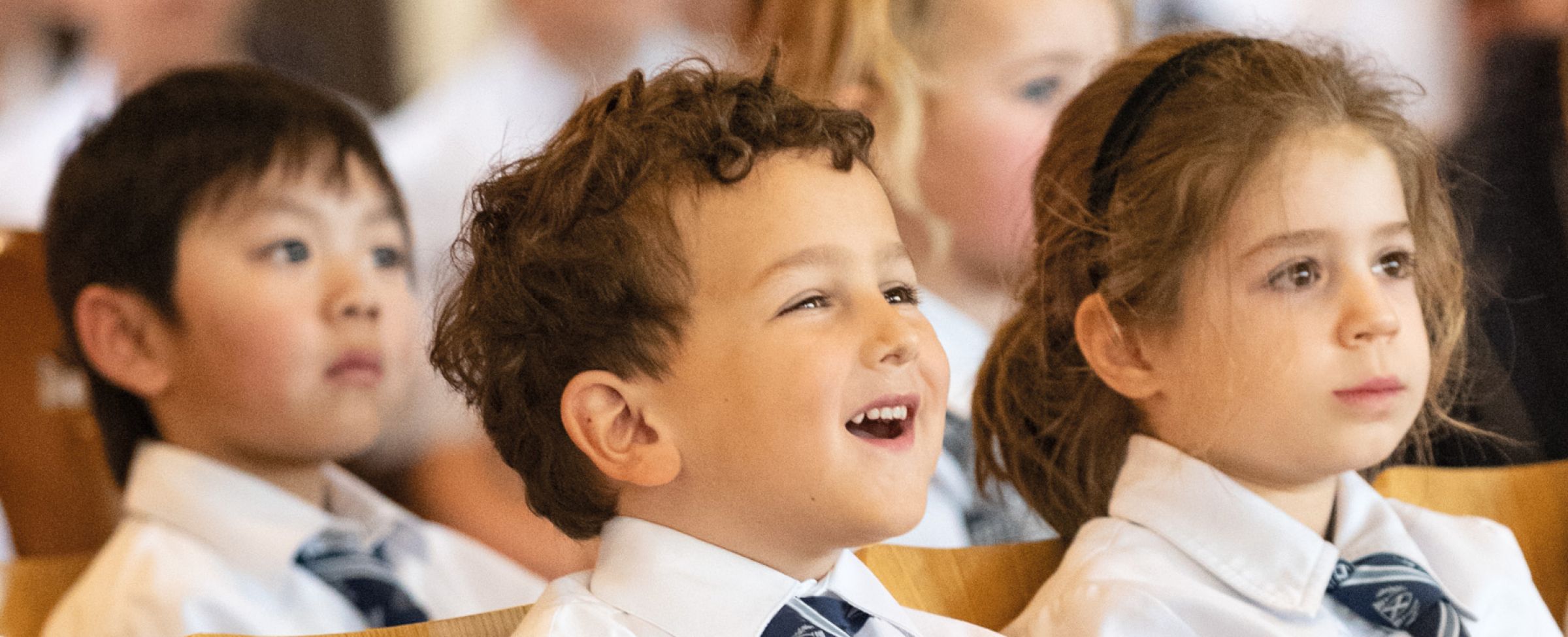
Making a Gift in Your Will
Te tākoha mā tō ōhākī
A gift in your Will (bequest) for education is one of the most powerful ways to support and shape the future – whether large or small, your gift will impact the lives of young people and open doors to opportunity for generations to come.
Why make a gift in your Will
A Will is a promise to the future – it enables you to provide care and support for loved ones beyond your lifetime, and also gives you the opportunity to create a personal legacy to causes close to your heart.
Reasons our bequest donors choose to support St Andrew's College include:
• the opportunity to make a difference to a cause important to you;
• fulfilment of personal philanthropic goals while still having the use of your assets;
• the opportunity to honour someone special in a meaningful way;
• the opportunity to create something extraordinary.
The generous philanthropy of our St Andrew’s College community – combined with vision, passion and wise stewardship – has sustained our students for the past 100 years, and is what enables us to step forward confidently into the future, continuing to nurture our dynamic young community of learners.
Creating a gift in your Will for St Andrew’s College gives you the opportunity to envision and realise that future with us. You can empower St Andrew’s students of tomorrow.
Education is, perhaps, one of the most profound legacies we can create: it helps shape the lives not only of individuals but all of the communities their lives will touch.
You can inspire and support future generations in ways you never knew were possible.
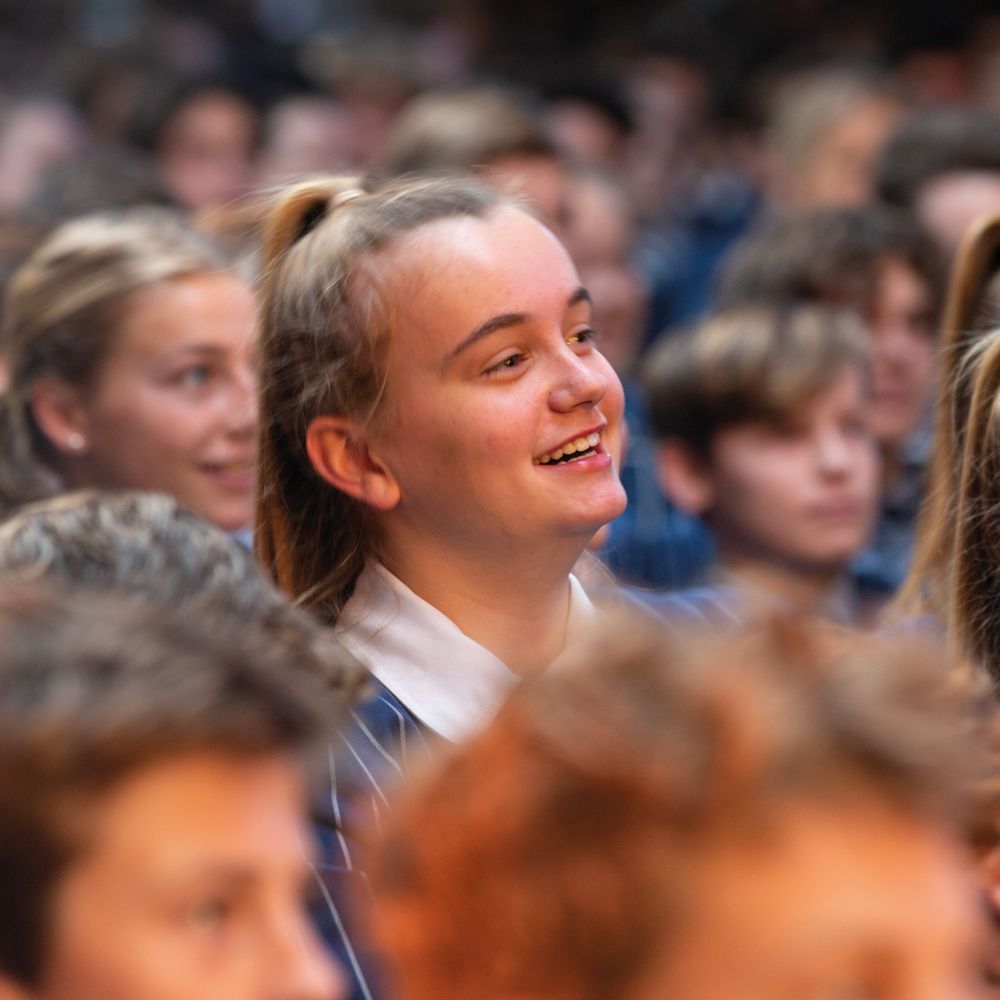
"If I hadn’t gone to St Andrew’s, I would likely still have succeeded, but St Andrew’s made it easier for me to do so, and I’m very grateful for that. The culture of the boys, and their broader outlook on life, with more ambition to achieve, had such an impact. I would hope that I could also be useful in leaving something behind, so another boy or girl could have the same benefits I did."
Warwick Rathgen (OC 1954) Bequest donor
How to leave a gift in your Will
When you do not have a Will, there is a risk your estate will be distributed in a way you would not have intended, leaving out people who are important to you; and if you have no living relatives, your entire estate will pass automatically to the Government. Making a Will ensures that your estate is distributed in a way which is meaningful to you.
There are different methods for making your gift:
• a percentage of your estate;
• a specified amount or asset (real estate, stocks, shares, collectibles, etc.);
• a residual bequest: part or all of the remaining estate, after other beneficiaries have been provided for;
• a contingent bequest: naming St Andrew’s College as an alternative beneficiary in the event another beneficiary is not able to receive their inheritance;
• an in vivo gift: part or all of your bequest is given during your lifetime, allowing you to witness the impact of your support.
It is always advisable to seek legal assistance for creating your Will, to ensure that your wishes will be carried out in the manner you intended, and especially when considering a charitable gift in your Will (also called a bequest) to an organisation such as St Andrew’s College. We also recommend you discuss your charitable bequests with your family, so they understand why they are important to you.
1917 Society
Everyone who pledges a gift in their Will to St Andrew’s College is eligible to be a member of our 1917 Society, with unique and special privileges. This is a means for us to thank you during your lifetime for your generous investment in the future of St Andrew’s College students.
We respect the privacy of those who prefer to remain anonymous. If you are considering making a bequest or have already made arrangements to leave a bequest to St Andrew’s College, we would love to hear from you so that we can invite you to join the 1917 Society and acknowledge your generosity during your lifetime.
Warwick Rathgen JP (OC 1950-1954)
Despite receiving “quite a lot of canings” in his first two years at school, Warwick Rathgen had his heart set so firmly upon a St Andrew’s College education that he worked every Saturday to help pay his own tuition fees.
Now he is leaving a gift in his Will to the College, so other talented young students can receive scholarships to follow their dreams without financial hindrance.
Even at age 12, the fourth son in a family of five children, Warwick knew he wanted to buck the Rathgen family trend that “a real man makes his living with his hands”, broadening both his academic and professional horizons.
To his huge disappointment, he narrowly missed the 1949 St Andrew’s scholarship entrance exam by just two marks.
“I pleaded with my father to let me attend anyway. He finally said, ‘Ok, Warwick, you can go, but you have to work every Saturday and every school holidays, plus hand over all of your earnings to pay the fees’.”
Warwick worked diligently throughout his schooling at the local wool stores and also on the construction of the St Andrew’s College Chapel in the August holidays of 1953, in order to fund his education.
“I was inspired to achieve, even before I sat the scholarship exam; but St Andrew’s stirred me up and made me even more ambitious.”
Warwick says that at that time, the sons of the sheep farming families were considered the “aristocracy” of the school.
“I looked at the other boys at school with me, and I didn’t want to be not as good as the ‘aristocracy’, or the boys from professional families. I thought, if they can do it, I can too, and I’ll damn well do it better if I can.”
Warwick rose above his early misdemeanours (one of which included nailing a St Andrew’s College cross to the Christ’s College goalposts the night before a rugby match) to become both a College Prefect and Sergeant Major of the Cadets, while also discovering a great talent for writing.
After completing his schooling at St Andrew’s in 1954, he set off on what is now known as an OE (Overseas Experience) but what was then called returning “Home” as a “son of the British Empire”.
His father waved off his ship with the same tough love sentiment he had applied to his son’s schooling.
“He shook my hand and said, ‘Good luck, son. I want you to know that if you ever have any difficulties, I will always be here. But, of course, if you do have to call on that, it will be something of a failure on your part’.
“I ascended the gang plank in a cold fury, but it was, perhaps, the best thing he could have said to me, because it really did fire me up to prove my adulthood and independence.”
To his family’s continuing dismay, after Warwick returned from his travels two years later, he enrolled at what was then Canterbury College and graduated as a Bachelor of Arts from the University of Canterbury in 1961.
His first job out of university was in marketing for Unilever, where he quickly rose to the role of nationwide marketing manager. Eventually, he turned to dairy farming, and then achieved his ultimate goal of joining the sheep farmers, also later becoming a Justice of the Peace.
Warwick says St Andrew’s College changed his life.
“If I hadn’t gone to St Andrew’s, I would likely still have succeeded, but St Andrew’s made it easier for me to do so, and I’m very grateful for that.”
“The culture of the boys, and their broader outlook on life, with more ambition to achieve, had such an impact.”
“I would hope that I could also be useful in leaving something behind, so another boy or girl could have the same benefits I did. Because people were really very helpful to me.”
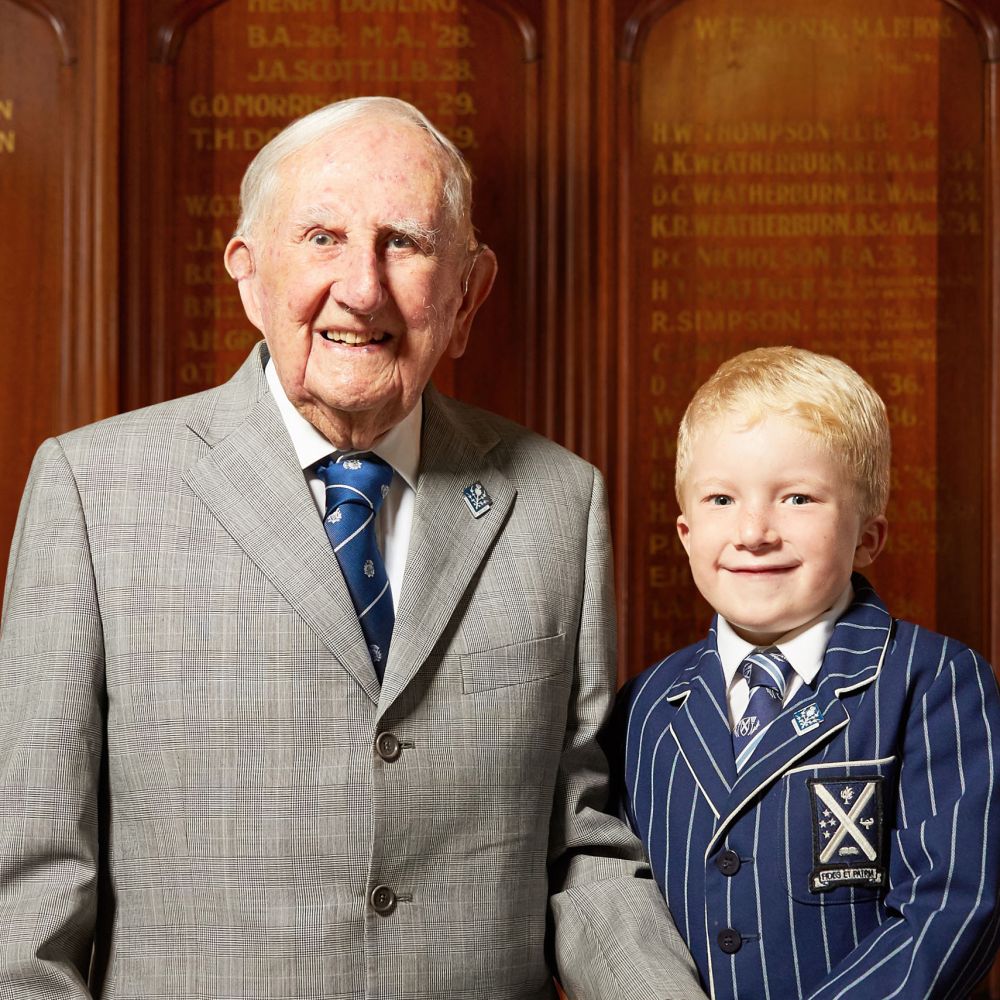
An investment for generations
Bruce Fraser knows first-hand the incredible power of an endowment fund for supporting education – the 1955 alumnus was responsible for establishing the St Andrew’s College Foundation more than 25 years ago, creating two significant legacies at the same time.
“I felt as a person going out knocking on the doors of old boys, I really had to show a personal commitment to the cause, so I made a bequest.” In 1990, Bruce accepted an invitation from the then College Rector and Board Chair to assist in setting up the Foundation and was the inaugural Chair for three years. His bequest is an untagged gift to the Foundation Endowment Fund, an investment in the long-term financial security of St Andrew’s, helping the College to thrive at what it does best: providing a world-class education.
“A Foundation takes a long, long time to get under way, but if it’s created with an endowment fund, where only the interest is used, it becomes a tremendous asset. It means the College can meet priority funding needs that otherwise could only be covered by constantly raising the tuition fees. At the end of the day, the College can only survive if its income exceeds its outgoings.”
In 2018, aged 81, Bruce and his wife Ailsa decided to convert the bequest into an in vivo gift, so that students could begin to benefit from it immediately.
Bruce says he was not an academic student and “truly left” the College after his final year. His older brother had attended Christchurch Boys’ School, but the success of the Fraser family business meant Bruce’s father could afford to send his second son to St Andrew’s College instead.
To Bruce, it was all much the same, except for a dramatic moment that left a lasting impact, when English teacher Henry Dowling chastised a rowdy class by slamming his books on the desk, declaring, ‘Do you realise your parents have made huge sacrifices to send you here?’
“There was a stunned silence from everyone. I had never heard that before.”
The self-confessed B-stream student mysteriously came top in Latin, but Bruce’s true passion was rowing, which was introduced after he began as a third former in 1951. Bruce was in the first crew and continued to row competitively for 17 years. He is a life member of both the Union Rowing Club (URC), one of the oldest sports clubs in Canterbury, and Canterbury Rowing Association, and has been a board member and past president of Rowing New Zealand.
After school, Bruce spent three years working at the National Bank, where he met Ailsa, and was transferred to Wellington before realising he would rather be part of the family business, a non-ferrous jobbing foundry, specialising in bathroom fittings and machinery componentry. The business was extremely successful, exporting 85% of its product internationally, and was eventually sold to McKechnie, which allowed Bruce to retire at age 55.
Bruce was reconnected with St Andrew’s as a parent, through son Robert, and is re-discovering the College all over again through a granddaughter, who has picked up her grandfather’s passion for rowing.
“I am enjoying the fact my granddaughter is there now. I pick her up from school once a week and bring her home, so am gradually getting drawn in again.”
Ailsa has also been a continuous active supporter of the College, as both parent and grandparent. She has, for many years now, been a member and one-time President of the Ladies' Circle, the group for partners and grandparents of Old Collegians and students, who meet regularly and fundraise on behalf of the College.
What stands out for Bruce from his own school days is the St Andrew’s ethos and culture.
“It had a code of conduct that was distinctive from other schools.”
He thinks the College continues to shine. “St Andrew’s today is a fantastic school. The kids are incredibly motivated, the academic standards are high, and the events they put on—the pipe band, the orchestra, the musicals, are just outstanding; it makes me cringe at our own pipe band efforts! I think they are doing a magnificent job.”
Bruce (1951–1955) & Ailsa Fraser.
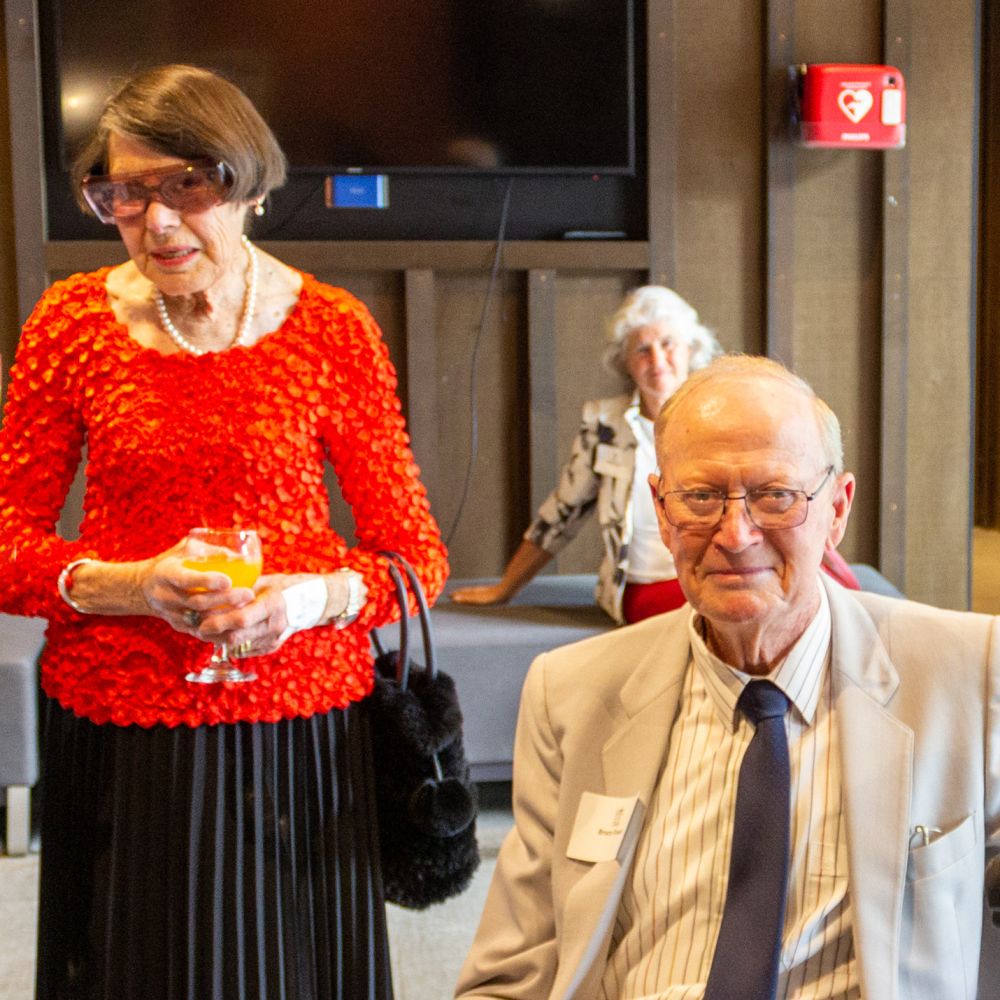
Next Steps
We encourage you to have a confidential, no obligation discussion with our Head of Development and Community Relations. You can also read more information in our online 'Making a gift with your Bequest' brochure.
For more information
Contact
For further information or to discuss leaving a gift in your Will, please contact our Head of Development and Community Relations in confidence, over the phone, via email, or make arrangements to meet in person.


